The Cisco Certified Internetwork Expert (CCIE) certification stands as one of the most prestigious and demanding credentials in the global technology industry.1 Since its inception in 1993, it has served as the definitive benchmark for expert-level networking skills, identifying the elite practitioners capable of designing, managing, and troubleshooting the most complex network infrastructures.3 Consequently, a frequent and important question among networking professionals, hiring managers, and industry analysts is just how many individuals have attained this certification, particularly within the United States, the world’s largest technology market. This inquiry is driven by a need to understand the certification’s exclusivity, its market value, and the competitive landscape for top-tier networking talent.
There are approximately 5,025 Cisco Certified Internetwork Experts (CCIEs) in the United States. This figure represents the largest concentration of CCIEs in any single country, out of an estimated global population of 45,000 to 50,000 active certification holders.3
The precise number of CCIEs in the United States is more than a simple statistic; it is a reflection of the certification’s role as a career catalyst. The relative rarity of this credential directly influences career opportunities, salary potential, and the demand for these highly skilled professionals. Understanding this number in its full context requires a deeper exploration of the global distribution of CCIEs, the financial and career benefits it confers, the immense difficulty of the certification process, and its continued relevance in a technology landscape increasingly dominated by cloud computing and artificial intelligence.
The small and elite population of CCIEs in the United States is not an accident of history but a direct result of a grueling certification process, cementing the CCIE’s status as a powerful career differentiator that unlocks access to top-tier salaries, senior-level roles, and the most challenging networking assignments available.3
Table of Contents
How Do US CCIE Numbers Compare to the Global Landscape?
To truly appreciate the significance of the approximately 5,025 CCIEs in the United States, it is essential to place this figure within the broader global context. The worldwide distribution of these networking experts reveals key trends about the global IT economy, the certification’s history, and where the highest demand for this elite skill set resides. Analyzing these numbers provides a clear picture of the certification’s concentration and its role as an indicator of technological investment.
The United States is home to approximately 10-11% of the world’s active CCIEs, making it the country with the single largest population of these experts. Globally, there are an estimated 45,000 to 50,000 active CCIEs, with North America as a whole accounting for roughly 40% of the total.3
A crucial distinction exists between the total number of CCIE certifications ever issued and the number of currently active professionals. Since the program was launched in 1993, with the first certification number (#1025) awarded to Stuart Biggs, more than 69,000 CCIE numbers have been assigned.3 However, the CCIE is not a lifetime credential; it requires recertification every three years to remain active.8 This stringent requirement ensures that holders remain current with evolving technologies. As a result, industry estimates place the number of
active CCIEs worldwide between 45,000 and 50,000.3 This indicates that a substantial number of certifications—approximately 20,000 to 24,000—have either expired or been transitioned to Emeritus status by long-tenured experts who may have moved into roles less focused on day-to-day technical work.3 This gap between issued and active certifications is a powerful testament to the ongoing commitment required to maintain the credential, filtering out individuals who do not remain at the cutting edge of the networking field.
The geographic distribution of these active experts underscores the concentration of advanced technological infrastructure worldwide. North America leads with approximately 40% of all active CCIEs, followed by the Asia Pacific region (around 30%), Europe (around 20%), and Latin America (around 10%).7 This distribution closely mirrors the world’s major economic hubs, suggesting that the presence of a significant CCIE population is a strong indicator of a region’s investment in complex, high-stakes digital infrastructure that forms the backbone of modern finance, telecommunications, and technology industries. The data provides a more granular country-level breakdown that highlights the dominance of the United States.
| Country / Region | Estimated Number of CCIEs |
| United States | ~5,025 |
| Asia Pacific | ~13,500–14,400 |
| Canada | ~740 |
| Mexico | ~118 |
| Caribbean | ~13 |
Data compiled from various industry estimates and reports.3
The exclusivity of the CCIE community deepens further when considering individuals who hold multiple certifications across different expert-level tracks. Data from community-driven projects like the CCIE Hall of Fame reveals that thousands of professionals have pursued and achieved more than one CCIE. For instance, analyses show that approximately 2,476 individuals hold two CCIEs, 640 hold three, 190 hold four, and an exceptionally elite group of 71 individuals has earned five separate CCIE certifications.3 This demonstrates a culture of profound and continuous learning that is characteristic of the CCIE community.
Sub claims
The heavy concentration of CCIEs in the United States signifies a mature and highly demanding market for expert-level networking skills, making it both the most competitive and most lucrative region for these professionals globally.
What Does the Career and Salary Landscape for a US-Based CCIE Look Like?
Beyond mere population numbers, the true measure of a certification’s value lies in its real-world impact on career trajectory and earning potential. For CCIE holders in the United States, the credential acts as a key that unlocks not just higher paychecks, but also more senior, strategic roles within the IT hierarchy. The financial returns and career acceleration associated with the CCIE are well-documented and serve as a primary motivator for professionals who undertake the arduous certification journey.
The average salary for a CCIE-certified professional in the United States ranges from $130,000 to $160,000 annually, with top earners and specialized roles like Network Architect commanding salaries well over $200,000. This represents a significant premium over other networking certifications.10
The compensation for a CCIE-certified professional scales dramatically with experience and is heavily influenced by job function and geographic location. The industry data reveals a clear financial ladder that CCIEs can climb throughout their careers.
- Compensation by Experience: A newly certified CCIE with limited post-certification experience can expect to earn between $85,000 and $100,000. With 5 to 9 years of experience, that range increases substantially to $110,000-$180,000. Veteran professionals with over a decade of experience in the field can command salaries of $150,000 to $220,000 or more, placing them in the upper echelon of IT earners.10
- Compensation by Job Role: The specific job title has a profound impact on salary. A CCIE working as a Network Architect, a role focused on high-level design and strategy, has an average salary of around $157,575. A Senior Network Engineer, who is more involved in implementation and operations, averages approximately $139,970.13 Other high-paying roles include Cloud Network Engineer ($140,000-$160,000) and Senior Security Consultant ($115,000-$180,000), reflecting the high demand for specialized expertise.10
- Compensation by Location: As with most high-tech professions, geography plays a critical role in salary levels. Major technology hubs with a high demand for talent and a higher cost of living offer a significant pay premium. For example, salaries in Silicon Valley can average $170,000 or more.10 More detailed data from 2025 estimates shows that the average annual salary for a CCIE in California is approximately $128,048, while in Texas it is around $120,880, and in New York City, it is about $141,948. Top earners in these regions can make substantially more, with the 90th percentile reaching over $165,000 in California, $156,000 in Texas, and $183,000 in New York City.14
The data also shows a clear distinction in the seniority of CCIE holders. This is not a certification typically held by junior staff. Over 63% of CCIEs hold Senior, Manager, or Director-level positions.17 This is not merely a correlation; it points to a causal relationship where the CCIE acts as a filter for high-responsibility roles. Companies are often unwilling to entrust their most mission-critical and complex network infrastructures to anyone less than a proven expert. The CCIE certification serves as that proof, effectively functioning as a prerequisite for interviews for these top-tier jobs. The primary industries employing these experts are Information Technology, Computer Networking, and Telecommunications, which collectively account for over 95% of all CCIEs.3
| Job Role | Experience Level | Average Annual Salary Range (USD) |
| Network Engineer | 1-4 years | $85,000 – $120,000 |
| Senior Network Engineer | 5-9 years | $110,000 – $185,000 |
| Network Architect | 10+ years | $150,000 – $200,000+ |
| Senior Security Consultant | 5-9 years | $115,000 – $180,000 |
| Cloud Network Engineer | 5-9 years | $140,000 – $160,000 |
Salary ranges compiled from multiple industry reports and surveys.10
| US Tech Hub | Average Annual Salary (USD) | 75th Percentile Salary (USD) | Top Earners (90th Percentile, USD) |
| San Francisco, CA | $152,865 | $179,100 | $197,932 |
| New York City, NY | $141,948 | $166,300 | $183,797 |
| Austin, TX | $128,607 | $141,600 (State-level) | $156,517 (State-level) |
| Dallas, TX | $128,328 | $141,600 (State-level) | $156,517 (State-level) |
| San Jose, CA | $152,063 | $150,000 (State-level) | $165,800 (State-level) |
Salary data is based on 2025 estimates and compiled from multiple sources.14 State-level percentiles are used for Texas and some California cities where city-specific percentile data is not available.
This salary data also reveals a bifurcation in the networking field. There is a clear and significant pay gap between professionals certified at the Associate (CCNA) and Professional (CCNP) levels versus the Expert (CCIE) level. The average salary for a CCNP holder is generally in the $90,000 to $120,000 range.11 The jump to a CCIE average of $130,000-$160,000 is not merely incremental; it is a step-function increase. This demonstrates that the industry places a fundamentally different value on the expert level, signifying a move from a “technician” or “administrator” pay grade to that of an “expert” or “architect.”
Sub claims
Holding a CCIE certification provides a quantifiable and substantial financial return, but its primary value lies in accelerating career progression into senior, strategic, and leadership positions.
Why Is the CCIE Certification So Exclusive and Difficult to Achieve?
The scarcity of CCIEs is not due to a lack of interest, but rather the result of one of the most notoriously challenging certification processes in the entire technology industry. The exam’s design, rigor, and the sheer breadth of knowledge required serve as a powerful quality control mechanism. Understanding the structure of the CCIE exams is key to understanding why the credential maintains its elite status and commands such high value in the marketplace.
The CCIE’s exclusivity is primarily due to its formidable 8-hour, hands-on practical lab exam, which tests a candidate’s ability to design, deploy, operate, and optimize a complex network under intense time pressure. With a pass rate estimated to be between 10% and 26%, it is designed to validate only the most proficient experts.3
The path to CCIE certification is a two-stage gauntlet. The first step is to pass a 120-minute qualifying written exam, such as the 350-401 ENCOR for the Enterprise Infrastructure track. This exam covers a broad range of core networking technologies and serves as a knowledge check before a candidate is eligible to attempt the lab.2 While challenging in its own right, it is the second stage that has earned the CCIE its reputation.
The 8-hour practical lab exam is the true crucible of the CCIE process. The modern lab exam has evolved from its original two-day format into a single-day, 8-hour marathon divided into two distinct modules that follow a progressive storyline, simulating the lifecycle of a real-world network project.4
- Module 1: Design (3 hours): This module assesses a candidate’s architectural and design capabilities. Candidates are presented with a scenario through various documents, such as email threads, high-level design documents, and customer requirements. They must then answer a series of web-based questions (e.g., drag-and-drop, multiple-choice) to create a viable network design. Crucially, there is no access to live network devices in this module, and backward navigation through the questions is disabled.22 This constraint forces candidates to make definitive design choices based on the information provided and commit to them, a powerful simulation of the decision-making pressure faced by senior architects. It tests professional judgment and the ability to operate under ambiguity.
- Module 2: Deploy, Operate, and Optimize (5 hours): This module is a hands-on test of practical skills. Candidates are given access to a virtualized network environment and are tasked with building, troubleshooting, and optimizing the network based on the design parameters established in the first module. This section tests command-line proficiency, problem-solving speed, and the ability to work accurately under intense time pressure.22
The scoring mechanism for the lab exam adds another layer of difficulty. To pass, a candidate must achieve two conditions: their total score across both modules must be higher than the aggregated pass score, and their score on each individual module must be higher than that module’s minimum required score.22 This means a candidate can fail the entire exam by underperforming on just one module, even if their overall score is very high. This structure ensures that a CCIE is proficient in both high-level design and hands-on implementation.
The breadth and depth of the topics covered are immense, requiring an expert-level understanding of everything from fundamental switching and routing protocols like OSPF and BGP to modern technologies like SD-WAN, network automation with Python, and programmability using APIs.24 This vast scope necessitates a significant time investment; successful candidates often report spending 1,000 to 1,500 hours in dedicated study and hands-on lab practice over a period of many months or even years.26
| Module | Duration | Format | Key Objectives |
| Module 1: Design | 3 Hours | Scenario-based with web-based items (e.g., drag-and-drop, multiple choice). No device access. Backward navigation is disabled. | Translate customer requirements into a high-level network design. Assess technology capabilities and justify design choices based on provided documentation and constraints. |
| Module 2: Deploy, Operate, and Optimize | 5 Hours | Hands-on practical configuration and troubleshooting in a virtualized lab environment, supplemented with web-based items. | Build the network according to design specifications. Configure, integrate, and troubleshoot complex technologies. Monitor, operate, and optimize the network for performance, security, and reliability. |
Table data compiled from official Cisco exam descriptions.4
Sub claims
The CCIE exam’s multi-faceted difficulty—spanning theoretical depth, design acumen, hands-on speed and accuracy, and immense time commitment—is a deliberate quality control mechanism that ensures its value by certifying only the most capable and resilient networking professionals.
Is the CCIE Still a Premier Certification in the Age of Cloud and AI?
With the meteoric rise of cloud computing and the relentless march of automation and AI, many professionals have questioned the relevance of a certification traditionally rooted in on-premises hardware. However, a closer examination of the evolved CCIE curriculum and the fundamental nature of networking reveals that the CCIE is not only still relevant but is arguably more critical than ever for navigating the complexities of modern IT infrastructure.
Yes, the CCIE remains a premier certification because it has evolved to include crucial skills in Software-Defined Networking (SDN), automation, and programmability. It provides the deep foundational networking expertise that is essential for building, securing, and troubleshooting the complex hybrid and multi-cloud environments that modern businesses rely on.6
Cisco has proactively and continuously updated the CCIE program to reflect the realities of the modern network. The certification has undergone a strategic repositioning from being the “master of the Cisco CLI” to the “master of the hybrid enterprise network fabric.” The CCIE Enterprise Infrastructure exam, for example, now dedicates 25% of its lab score to “Software Defined Infrastructure,” which includes Cisco SD-Access and SD-WAN, and another 15% to “Infrastructure Automation and Programmability,” which tests skills in Python, NETCONF/RESTCONF, and interacting with APIs.25 This evolution ensures that newly certified experts are equipped to manage the software-defined, automated networks that are becoming the enterprise standard.
The debate is often incorrectly framed as “CCIE versus cloud certifications” like those from AWS or Azure. In reality, these credentials are not competitors but are highly complementary. Cloud certifications are excellent for teaching professionals how to operate services within a specific provider’s abstracted environment. The CCIE, on the other hand, provides the deep, underlying knowledge of routing, security, and transport protocols that make those cloud services connect to the outside world. It is the CCIE who understands how to architect the secure, high-performance connection—the hybrid cloud “on-ramp”—between an enterprise’s private data center and its public cloud resources.29 An expert holding both a CCIE and a professional-level cloud certification possesses a uniquely valuable, full-stack perspective.
Furthermore, the abstraction provided by the cloud does not eliminate complexity; it merely hides it. When a critical application in a hybrid environment fails, troubleshooting requires an expert who can trace the data path from end to end—from the on-premises campus switch, through the SD-WAN fabric, across the VPN or Direct Connect link, and into the cloud provider’s virtual private cloud (VPC). This packet-level, protocol-deep understanding is the hallmark of a CCIE’s skill set.30
Looking forward, AI and automation are tools that augment, rather than replace, the network expert. While AI can handle routine configurations and predictive analysis, the tasks of designing the overall network architecture, troubleshooting novel and complex problems, and translating high-level business intent into network policy still require the advanced analytical and problem-solving skills forged by the CCIE certification process.6 The CCIE of the future is the professional who designs, builds, and manages the automated systems, not the one being replaced by them. The rigorous, analytical troubleshooting methodology learned during CCIE preparation—isolating variables, testing hypotheses, and performing under pressure—is a platform-agnostic meta-skill that is future-proof and transferable to any complex technological system.
Sub claims
Far from being rendered obsolete by the cloud, the modern CCIE certification provides the indispensable, expert-level knowledge of the network “underlay” required to successfully architect, secure, and operate the hybrid and multi-cloud infrastructures that define the future of enterprise IT.
Conclusion
The data provides a clear and compelling answer: there are approximately 5,025 Cisco Certified Internetwork Experts in the United States, a figure that firmly establishes this group as an elite cadre within the technology sector.3 This number, representing the largest concentration in the world, underscores the certification’s deep roots and continued importance in the most advanced IT market globally. The analysis demonstrates that this exclusivity is not arbitrary but is the direct outcome of a deliberately and exceptionally rigorous certification process, centered on an 8-hour practical lab exam designed to validate true, hands-on expertise.
This scarcity translates directly into significant real-world value. A CCIE certification provides a clear pathway to substantial salary premiums, with averages in the US ranging from $130,000 to $160,000 and the potential to exceed $200,000 in senior, architect-level roles.10 More importantly, it accelerates career progression, acting as a key differentiator for leadership positions that demand the highest levels of technical competence and problem-solving ability.
Finally, despite the transformative shifts toward cloud and automation, the CCIE has proven its resilience and adaptability. By integrating modern topics like SD-WAN and programmability into its curriculum, the certification has evolved. It is no longer just about mastering on-premises hardware but about architecting the entire hybrid enterprise fabric. The CCIE remains a premier credential, providing the foundational expertise necessary to build, secure, and manage the complex, interconnected, and automated networks that will power the next generation of digital business.
External links recommendations
- Official Cisco CCIE Certification Program Page
- Wikipedia – CCIE Certification Overview 4
- 591lab.com – “How Many CCIE in the World?” 3
- Pynetlabs.com – “How Many CCIE in the World?” 7
- Cisco Learning Network Blog – “Navigating the AI Era as a CCIE” 31
- Cisco Learning Network – “CCIE Practical Exam Format” 22
Works cited
- CCIE Certification: Requirements, Benefits, and Career Insights, accessed August 25, 2025, https://www.netcomlearning.com/blog/everything-you-need-to-know-about-the-cisco-ccie-certification
- Cisco CCIE Certification – Your Ultimate Guide in 2025 – 591 Lab, accessed August 25, 2025, https://591lab.com/certification/cisco-ccie-certification/
- How Many CCIE in the World? Discover the Real Numbers (2025 …, accessed August 25, 2025, https://591lab.com/certification/how-many-ccie-in-the-world/
- CCIE Certification – Wikipedia, accessed August 25, 2025, https://en.wikipedia.org/wiki/CCIE_Certification
- 591lab.com, accessed August 25, 2025, https://591lab.com/certification/how-many-ccie-in-the-world/
- Why the CCIE Certification is Important in 2024 and Beyond, accessed August 25, 2025, https://learningnetwork.cisco.com/s/question/0D56e0000E3Mc1BCQS/why-the-ccie-certification-is-important-in-2024-and-beyond
- How many CCIE in the World? (2025) – PyNet Labs, accessed August 25, 2025, https://www.pynetlabs.com/how-many-ccie-in-the-world/
- Cisco Certified Internetwork Expert (CCIE) Security – DoD COOL, accessed August 25, 2025, https://www.cool.osd.mil/dciv/credential/index.html?cert=ccies3812
- Global Number of CCIEs: How Many Are There Worldwide? – Exam-Labs, accessed August 25, 2025, https://www.exam-labs.com/blog/global-number-of-ccies-how-many-are-there-worldwide
- Cisco Certified Internetwork Expert Salary in 2025 – 591 Lab, accessed August 25, 2025, https://591lab.com/certification/cisco-certified-internetwork-expert-salary/
- What is the average salary of a CCIE in the US?, accessed August 25, 2025, https://ciscodumps.net/content/News/20240919/1008.html
- The 10 Top-Paying Cisco Certifications in 2025 – Global Knowledge, accessed August 25, 2025, https://www.globalknowledge.com/us-en/resources/resource-library/articles/the-10-top-paying-cisco-certifications-in-2025/
- Salary for Certification: Cisco Certified Internetwork Expert (CCIE) – Payscale, accessed August 25, 2025, https://www.payscale.com/research/US/Certification=Cisco_Certified_Internetwork_Expert_(CCIE)/Salary
- Ccie Salary in Texas: Hourly Rate (August, 2025) – ZipRecruiter, accessed August 25, 2025, https://www.ziprecruiter.com/Salaries/Ccie-Salary–in-Texas
- Ccie Salary in California: Hourly Rate (August, 2025) – ZipRecruiter, accessed August 25, 2025, https://www.ziprecruiter.com/Salaries/Ccie-Salary–in-California
- Ccie Salary in New York City, NY: Hourly Rate (Aug, 2025) – ZipRecruiter, accessed August 25, 2025, https://www.ziprecruiter.com/Salaries/Ccie-Salary-in-New-York-City,NY
- How Many CCIEs Are There In The World? – CBT Nuggets, accessed August 25, 2025, https://www.cbtnuggets.com/blog/certifications/cisco/how-many-ccies-are-there-in-the-world
- Ccie Salary in San Francisco, CA: Hourly Rate (Aug, 2025) – ZipRecruiter, accessed August 25, 2025, https://www.ziprecruiter.com/Salaries/Ccie-Salary-in-San-Francisco,CA
- CCIE in 2024 – Opticore IT – London.., accessed August 25, 2025, https://www.opticoreit.com/network-engineering-blog/ccie-in-2024/
- ciscodumps.net, accessed August 25, 2025, https://ciscodumps.net/News/What_is_the_pass_rate_for_the_CCIE_certification_exam__741.htm
- What is the pass rate for the CCIE certification exam?, accessed August 25, 2025, https://ciscodumps.net/News/What_is_the_pass_rate_for_the_CCIE_certification_exam__741.htm
- CCIE Practical Exam Format – Cisco Learning Network, accessed August 25, 2025, https://learningnetwork.cisco.com/s/article/ccie-practical-exam-format
- a-complete-guide-to-ccie-enterprise-infrastructure-lab-exam-preparation, accessed August 25, 2025, https://nitizsharma.com/a-complete-guide-to-ccie-enterprise-infrastructure-lab-exam-preparation/
- CCIE EI Lab Exam Topics – My CCIE Journey, accessed August 25, 2025, https://journey2theccie.wordpress.com/ccie-ei-lab-exam-topics/
- Cisco CCIE Enterprise Infrastructure Syllabus (2025) – PyNet Labs, accessed August 25, 2025, https://www.pynetlabs.com/cisco-ccie-enterprise-infrastructure-syllabus/
- Is CCIE difficult to pass?, accessed August 25, 2025, https://www.ciscodumps.net/content/News/20240918/984.html
- What Makes the Cisco CCIE Lab Exam so Difficult? – YouTube, accessed August 25, 2025, https://www.youtube.com/watch?v=jCBAkFzsD6Y
- Is the CCIE Certification Still Worth Pursuing in 2025? – Spoto, accessed August 25, 2025, https://cciedump.spoto.net/newblog/is-the-ccie-certification-still-worth-pursuing-in-2025.html
- Why CCIE Certification Still Holds Value in the Cloud Era | by Julie J. McClellan | Medium, accessed August 25, 2025, https://medium.com/@wendyhorton39/why-ccie-certification-still-holds-value-in-the-cloud-era-d5dcc2a173fb
- From CCIE to Google Cloud Network Engineer: four things to think about, accessed August 25, 2025, https://cloud.google.com/blog/products/networking/from-ccie-to-google-cloud-network-engineer-four-things-to-think-about
- How AI is Shaping the Future of CCIEs and Cisco Certifications | Snack Minute Ep. 187, accessed August 25, 2025, https://m.youtube.com/watch?v=9drXf30PYV4&pp=0gcJCa0JAYcqIYzv
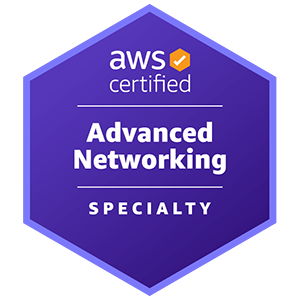



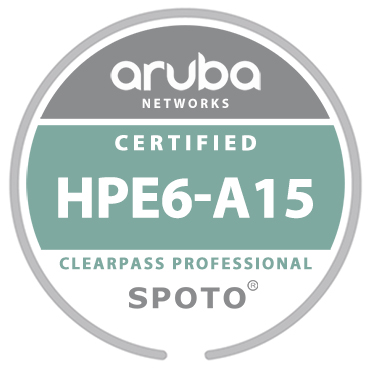
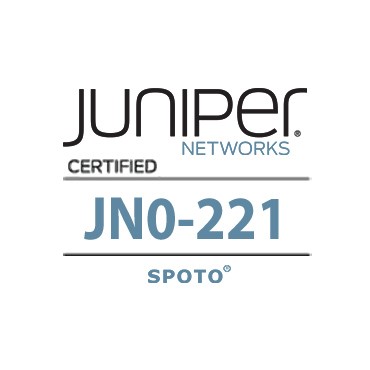
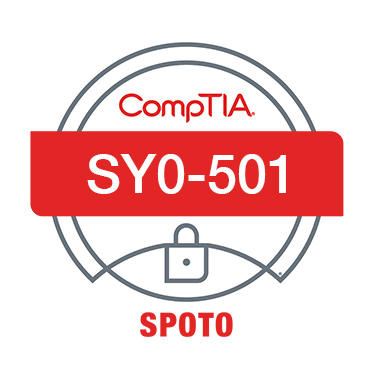

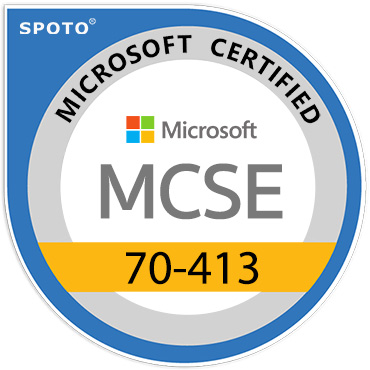

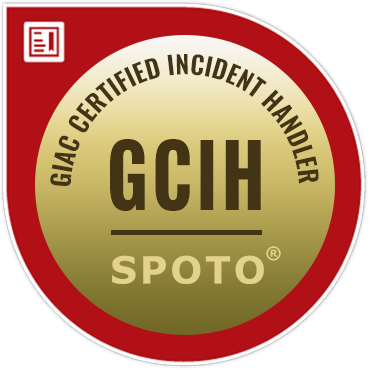

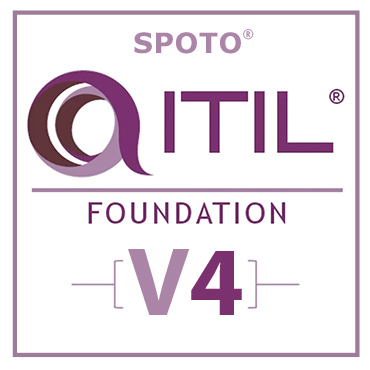
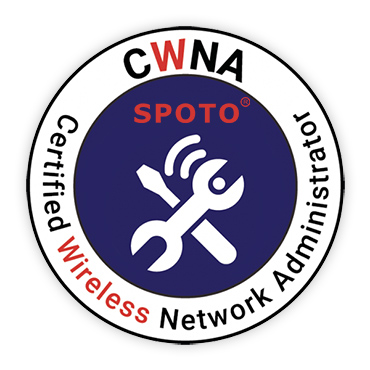




Comments